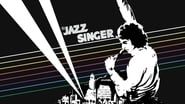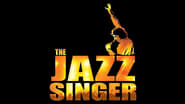Platicsco
Good story, Not enough for a whole film
Alistair Olson
After playing with our expectations, this turns out to be a very different sort of film.
Cassandra
Story: It's very simple but honestly that is fine.
Staci Frederick
Blistering performances.
Leofwine_draca
THE JAZZ SINGER is a straight-up remake of the 1927 Al Jolson musical in which a Jewish man pursues his dream of becoming a pop singer. How much you enjoy it depends really on your appreciation of Neil Diamond, as he dominates the proceedings here. The rest of the cast, including Laurence Olivier, don't get much of a look in, and there's little plotting to boot. Diamond's acting skills are limited to say the least, but he does belt out a number of decent tunes, so as an easy-listening piece this works pretty well.
wes-connors
Orthodox Jewish singer Neil Diamond (as Yussel Rabinovitch aka Jess Robin) moonlights as a "Soul" singer. After synagogue, he performs in "Blackface" make-up and wears an "Afro" wig. These wigs were plentiful on New York City street corners when this film was being made. Possibly, they still are. During the opening performance, some men in the audience notice Mr. Diamond's hands are "White" and beat him up. Oddly enough, Diamond is thrown in jail. He is bailed out by his father, Rabbi-rousing Laurence Olivier (as Cantor Rabinovitch). Their conflict is now in the open. Diamond wants to sing pop music, but Mr. Olivier thinks it's sinful...Diamond decides to pursue his singer/songwriter dreams in Los Angeles. He meets perky music agent Lucie Arnaz (as Molly Bell). She is impressed with Diamond's musical skills and agrees to manage him...This update of 1920s classic "The Jazz Singer" has a timeless conflict, but director Richard Fleischer and the producers have no luck in managing the movie. Diamond is never convincing as a young man leaving home to become a jazz singer. He's an accomplished adult pop star and always seems out of place in this story. Given a career due to her famous parents, Ms. Arnaz was largely dismissed during the 1970s; herein, she steals the show with a lovely, appealing and surprisingly natural performance. Unfortunately, there wasn't much of a show to steal and Arnaz' contribution went unnoticed. Still, she can always say she outperformed Olivier.**** The Jazz Singer (12/17/80) Richard Fleischer ~ Neil Diamond, Laurence Olivier, Lucie Arnaz, Catlin Adams
jarrodmcdonald-1
Charter cable's on-demand service usually provides films airing on FLIX and those titles are separated by decade. Last night I selected the menu for the 80s, and I came across the Neil Diamond version of THE JAZZ SINGER, from 1980. Since Dr. Goldman had recently screened the 1927 and 1952 versions on TCM as part of the Projected Image Series without even mentioning this later, more modern one-- I decided to watch it. I had never seen it before.Early in the picture, after Diamond's character starts to go off on his own and sing pop music, he is traveling with his band to a club. On the way there, he finds out it's a black club (which is what he says in the movie). All the guys in his band are black, except for him. When they get to the club and go backstage to get ready, someone has the idea of putting him in black face so he will blend in with the rest of them. We cut to them performing on stage and Diamond is indeed in black face for that number. The camera pans to the crowd and all the patrons are black and they are digging the music. At some point, a guy in the audience realizes Diamond is Jewish, not black, and he is exposed for being 'different.'Personally, I did not find this scene to be offensive-- and I thought it was a rather clever way for the writers to come up with keeping that portion of the Jolson version in the story. I can't remember if Danny Thomas appeared in black face in the second film, but I don't think he did. Neil Diamond's THE JAZZ SINGER was not a huge commercial hit, but it made $27 million at the time of its release ($78 million dollars today using an inflation calculator) and it earned another $4 million with domestic television broadcasts. Obviously a lot of people at the time saw Diamond in black face, and it wasn't enough for the project to fail. The soundtrack went multi-platinum, too. So in a way, this version did have a significant cultural impact, long after the days of Martin Luther King and the civil rights era-- but of course, before our current stranglehold of political correctness.
moonspinner55
Balladeering "rock" singer Neil Diamond's puerile brand of romantic pop certainly has its followers, yet his soggy uplift is an uncomfortable match in this modern-day story of a Jewish cantor's son chucking the synagogue for a chance at mass stardom. The film is a big bogus cliché embalmed in Hollywood-ized Saran-Wrap, and Diamond's acting debut consists of a series of glowering poses. Remake of the 1927 and 1953 films does try to be clever (such as an early scene with Diamond singing in an all-black nightclub), but the minute the love story with Lucie Arnaz is interjected, any energy the movie has worked up goes right out the window (it's just a plot-device, though Arnaz keeps her dignity). Laurence Olivier overacts as Diamond's father, mincing and spitting out his lines in what results as a Jewish parody, and the finale is a laughably cheap artifice. If you really must hear "America" or "Love On The Rocks", you'd be better off with the CD. *1/2 from ****





